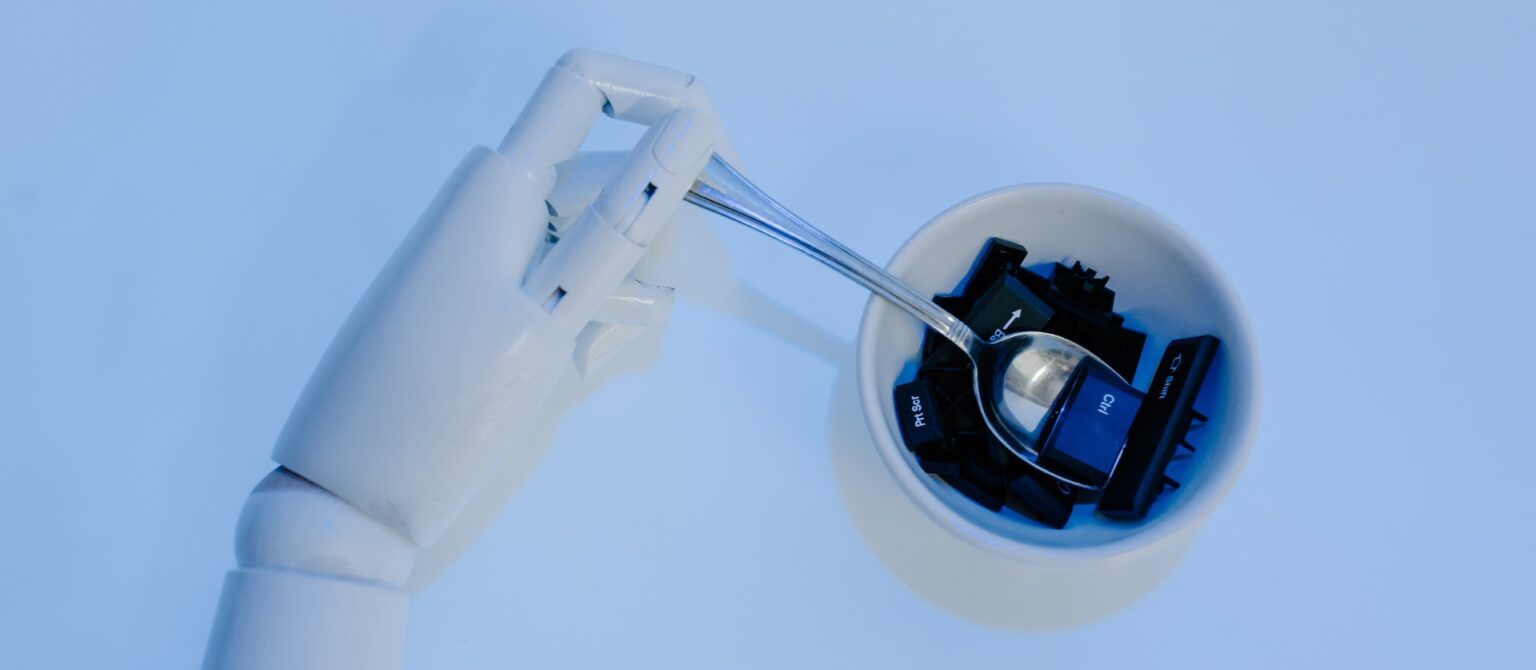Generative artificial intelligence (AI), such as ChatGPT and Bard, may be angst-inducing for some people. The speed at which the technology is advancing and “learning” is key. More than one person has imagined machines turning on their creators.
Businesses that use and create content have more immediate and less dystopian concerns. If your business is using AI to produce blog posts, images or videos, keep reading. You should understand the evolving rules of the road regarding the development and use of such content. In short, be aware of potential legal risks, such as copyright infringement.
What Is Generative AI?
Generative AI involves algorithms that can devour and process nearly all publicly available information. That includes human-authored material. Based on a prompt from a human, AI uses inferences from its “training” to generate new content. What’s causing amazement and freakouts? It’s how natural and impressive AI’s output is. And how much and how fast generative AI appears to be learning.
For example, ask ChatGPT to “write 500 words about the benefits of vinyl floor tiles.” In seconds, it will produce a piece that reads as if it came from a competent writer. A similar program called DALL-E can do the same thing with art and images. Give it a prompt such as, “Create a painting in the style of Michelangelo. As the subject, show an angel eating a burrito.” It will create an image that will make you believe Renaissance Italy had access to Mexican food.
What Are the Legal Concerns for Businesses That Use AI-Generated Content?
Most businesses know they can’t take others’ content, such as photos and articles, and publish it on their websites. They also know they can’t use such material for their own commercial purposes. If they did, they’d be at risk for copyright infringement. That’s why your company pays for copyrighted stock images rather than copying and pasting photos from the internet. Conversely, no business wants to see others using its copyrighted work.
But what about AI-generated content or material created in part by AI and by a person? Do businesses face the same risks with using such content as they do with human-generated content?
Copyrights Are for Humans – Not Machines
The key legal question is whether copyright laws and protections apply to AI-generated content. Can a piece of text, an image or a video that came from AI be copyrighted? If it can, who (or what) holds the copyright? Is it the AI that generated the content or the human who wrote the prompt that led AI to create it?
The answer from the U.S. Copyright Office is that copyrights are only for human creators – not artificial ones. In guidance the Office released on March 16, 2023, it wrote:
“It’s well-established that copyright can protect only material that is the product of human creativity. … The term ‘author,’ which is used in both the Constitution and the Copyright Act, excludes non-humans.”
Therefore, AI-generated content that includes no human contribution beyond a prompt isn’t copyrightable. The Copyright Office went on to write the following:
“… When an AI technology receives solely a prompt from a human and produces complex written, visual, or musical works in response, the ‘traditional elements of authorship’ are determined and executed by the technology – not the human user. Based on the Office’s understanding of the generative AI technologies currently available, users do not exercise ultimate creative control over how such systems interpret prompts and generate material. Instead, these prompts function more like instructions to a commissioned artist.”
Since such content can’t be copyrighted, a business that uses that content has no exclusive right to it. For example, a competitor could copy and paste an AI-generated blog post or image from a company website, and the business would have no recourse or infringement claim because there’s no copyright to be infringed.
However, AI-generated content that a human modifies or supplements may be copyrightable, at least in part. For example, a human may select, arrange, delete or add to AI-generated material in a sufficiently creative way that “the resulting work as a whole constitutes an original work of authorship.” What matters, according to the Copyright Office, “is the extent to which the human had creative control over the work’s expression and ‘actually formed’ the traditional elements of authorship.”
If AI-Generated Content Isn’t Subject to Copyright, What Do Businesses Have to Worry About?
Much of the “knowledge” that ChatGPT and other generative AI programs acquire and use to create new content comes from copyrighted works. Several artists and authors have sued the companies behind the technology. They claim that AI’s production of content “in the style of” their works infringes on their copyrights. But do users of AI-generated content face the same risks?
“Infringement requires access and copying,” said John Augustyn, an intellectual property lawyer at Leydig, Voit & Mayer, a Chicago-based law firm. “The alleged infringer must have seen or heard the copyrighted work that the new work is supposedly derived from.
“If you never saw or heard the copyrighted material, you can’t be held liable for infringement because you unknowingly created something strikingly similar,” he continued. “Since the human creator presumably didn’t know the human-created work was based on a copyrighted work, it’s unlikely that they would be deemed an infringer.”
However, if a person uses AI to generate an article, the AI-generated article may infringe the copyrighted work of another person, depending on the nature of the generated content, Augustyn said.
The risks for businesses that use AI-generated content are more about misappropriation of images and likenesses or defamation rather than copyright, he added.
“If you use AI to create a deepfake video of Tom Hanks endorsing your shooting range or spewing horrible, very un-Tom Hanks-like invective, for example, copyright infringement is the least of your worries,” Augustyn said.
As is often the case with new and rapidly changing technologies, interpreting and applying existing laws and legal concepts that didn’t anticipate such developments is an inexact science. Businesses that use generative AI to produce content are treading on a largely unexplored legal landscape. And while copyright infringement may not seem to pose much of a threat, users should proceed with caution. They might encounter other problems, such as relying upon the accuracy of content their machine collaborators produce.

